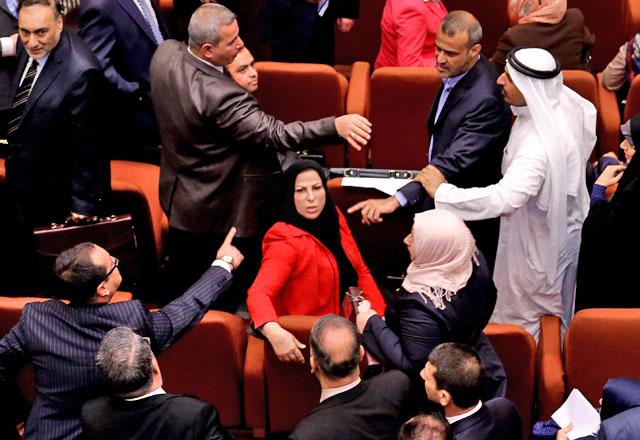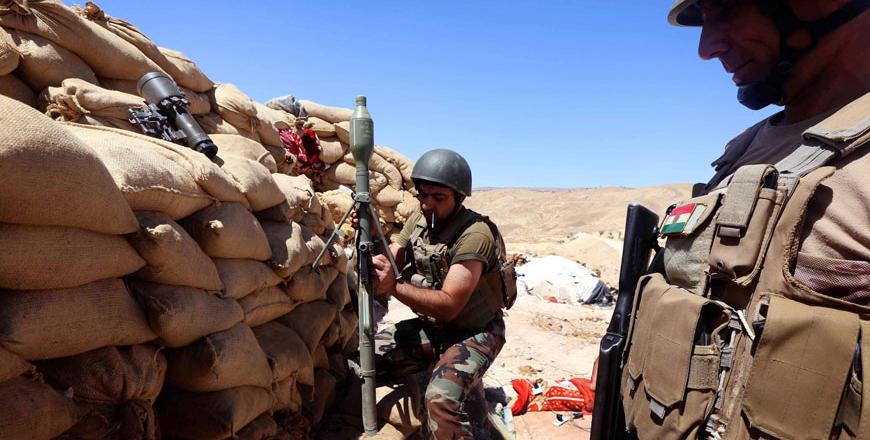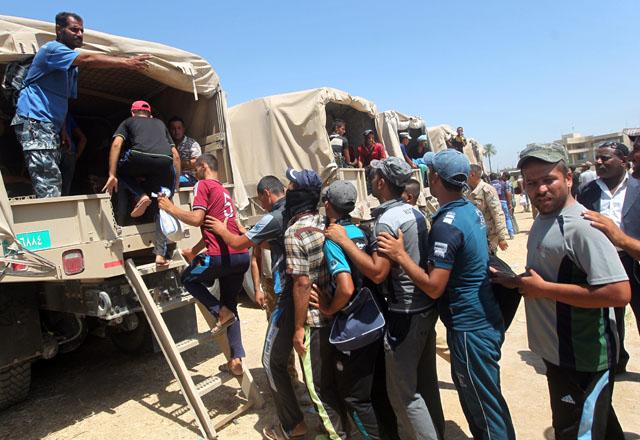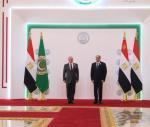You are here
Baghdad halts Kurdish cargo flights after ministers’ boycott
By Reuters - Jul 10,2014 - Last updated at Jul 10,2014
BAGHDAD/ERBIL — Kurdish ministers boycotted Iraq’s caretaker Cabinet and authorities in Baghdad halted cargo flights to two Kurdish cities on Thursday in an escalating feud between the Kurds and the Shiite-led central government.
The dispute, linked to an Islamist insurgency raging in Sunni Muslim provinces of Iraq, is likely to complicate efforts to reach agreement on a new government in Baghdad to help tackle the violence.
The four Kurdish ministers withdrew from Cabinet meetings in protest at Prime Minister Nouri Al Maliki’s “provocative” branding of their provincial capital Erbil as a haven for the Sunni militants who have seized much of north and west Iraq.
The gains by the Islamic State and other fighters pose the gravest security challenge to Maliki’s Shiite-led government since the withdrawal of US troops in 2011 and raise the spectre of Iraq fragmenting along sectarian and ethnic lines.
Kurds exploited the turmoil to take control of the city of Kirkuk and its huge oil reserves, achieving a long-held dream, and their leader Massoud Barzani told his parliament last week to prepare a referendum on independence, infuriating Baghdad.
A senior Kurdish official said the four Kurdish ministers would continue running their ministries and “did not pull out from the government”. They did not mention a timeline for their boycott or terms for their return, but they called for an inclusive national government.
In their absence, the Cabinet’s first agenda item on Thursday was to instruct the foreign ministry — headed by Kurdish minister Hoshiyar Zebari — to summon home diplomats reported to have demonstrated in London for Kurdish secession.
As the Cabinet met, the head of Iraq’s civil aviation authority, Nasser Bandar, said cargo flights to the Kurdish cities of Erbil and Suleimaniyah had been suspended.
He suggested the decision, which does not affect passenger flights, was linked to Maliki’s accusation that Erbil had become a base for Islamist militants.
“There are sometimes certain procedures that should be taken to prevent things reaching the hands of the terrorists, so we have decided to stop cargoes going to Suleimaniyah or Erbil until further notice,” Bandar told Reuters.
With the Islamist-led insurgency consuming Iraq’s Sunni provinces, the United States and other countries have called for politicians in Baghdad to set up a more inclusive government following a parliamentary election in April.
Sunnis and Kurds are demanding that Maliki leave office, saying he has marginalised them during his eight years in power, but he shows no sign of agreeing to step aside.
Relations between Baghdad and the Kurds hit a low on Wednesday when Maliki accused them of allowing Erbil to be used as a centre for Islamic State and others, including former members of Saddam Hussein’s now-banned Baath Party.
Responding to what he called Maliki’s “void” accusations, Barzani’s spokesman said on Thursday Maliki “has been afflicted by a true hysteria and lost his balance as he tries as hard as he can to justify his errors and failure and make others responsible for it”.
The spokesman, Omaid Sabah, said Erbil “is a refuge now for all those fleeing his dictatorship” and called for Maliki to apologise to the Iraqi people for destroying the country. “The person who destroyed it cannot save it from crises,” he added.
Many Sunni Muslims who fled the mostly Sunni northern city of Mosul during the militants’ offensive have ended up in Iraqi Kurdistan, with leading Sunni political figures hated by Maliki now frequenting Erbil.
The militants have seized cash, weapons and other equipment during their sweep through the Sunni provinces. Among their haul, Iraq told the United Nations this week, is nearly 40kg of uranium compound seized in Mosul.
The UN atomic agency played down the significance of the material on Thursday, saying it was “low grade” and did not pose a significant security risk.
The government also said it had lost control of a former chemical weapons facility last month at Muthanna, north of Baghdad, where remnants of a former chemical weapons programme were kept. A US Defence Department spokesman said the material appeared to be old and unlikely to be accessible or usable.
Related Articles
Iraq’s new parliament broke up in chaos Tuesday, with lawmakers threatening each other or walking out despite global calls for fractious politicians to form a government needed to face a Sunni militant onslaught.
BAGHDAD/BEIRUT — Iraq's former prime minister Nouri Al Maliki on Tuesday denounced as worthless a parliamentary report which blamed him and
Iraqi security forces found 53 corpses, blindfolded and handcuffed, south of Baghdad on Wednesday as Shiite and Kurdish leaders traded accusations over an Islamist insurgency raging in the country’s Sunni provinces.


















